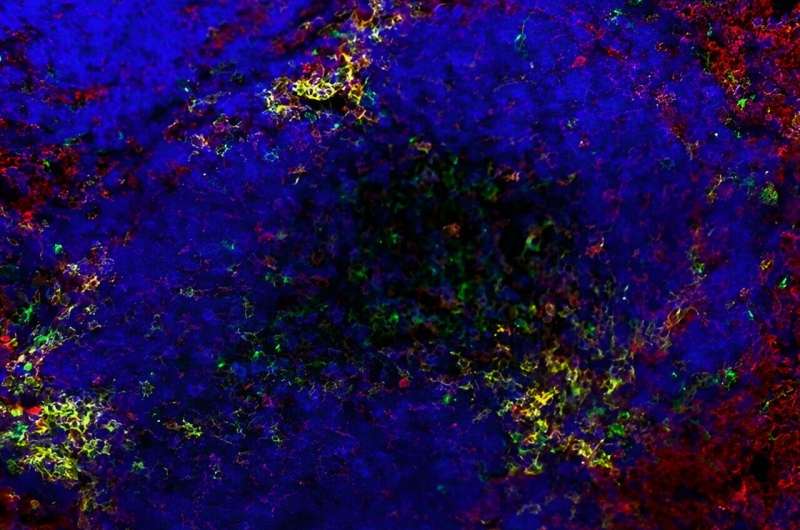This article has been reviewed according to Science X's editorial process and policies. Editors have highlighted the following attributes while ensuring the content's credibility:
fact-checked
peer-reviewed publication
proofread
Study finds Bcl6 protein is an important transcription factor for formation of certain dendritic cells

While previous studies have investigated the function of the protein Bcl6 in dendritic cells—in some cases with varying results—a new study published in Nature Communications has sought to harmonize the sometimes contradictory data with an in-depth analysis.
Dendritic cells are part of our innate immune system and occupy a central position there. "These cells are particularly good at initiating an effective T-cell-mediated immune response of the acquired immune system," explains co-corresponding author Prof Dirk Baumjohann from the Medical Clinic III for Hematology, Oncology, Immuno-Oncology and Rheumatology at the University Hospital of Bonn (UKB). "However, it is still unclear what exactly drives their heterogeneity and functional specialization."
The researchers therefore used a mouse model to investigate how the absence of Bcl6 affects all dendritic cell subgroups. "We found that, in particular, one specific dendritic cell subgroup (cDC2) is highly dependent on Bcl6," explains Prof Katharina Lahl, who led the project at the Technical University of Denmark and is now continuing her work in Calgary.
"Bcl6 deficiency leads to a lack of a dendritic cell subpopulation and results in impaired antibody responses in the spleen." As a result, the animals showed weakened immune responses in infection and vaccination models.
"Bcl6 deficiency also led to the loss of the cDC2 subgroup in the large intestine, which caused a delayed recovery from an intestinal infection," adds Prof Lahl.
In addition, the researchers were able to demonstrate with their study that the gene expression program in dendritic cells is already decisive for the subsequent cell fate of T cells and the associated immune response.
"The function of Bcl6 in dendritic cells overlaps with the already known function of Bcl6 in T cells and B cells and thus complements a gene expression program that acts synergistically across different immune cells," says Prof. Baumjohann.
"These findings can contribute to the development of new therapeutic strategies, for example by strengthening specific dendritic cells during infection or vaccination or weakening them in allergies and autoimmune diseases."
More information: Hongkui Xiao et al, Genomic deletion of Bcl6 differentially affects conventional dendritic cell subsets and compromises Tfh/Tfr/Th17 cell responses, Nature Communications (2024). DOI: 10.1038/s41467-024-46966-6


















